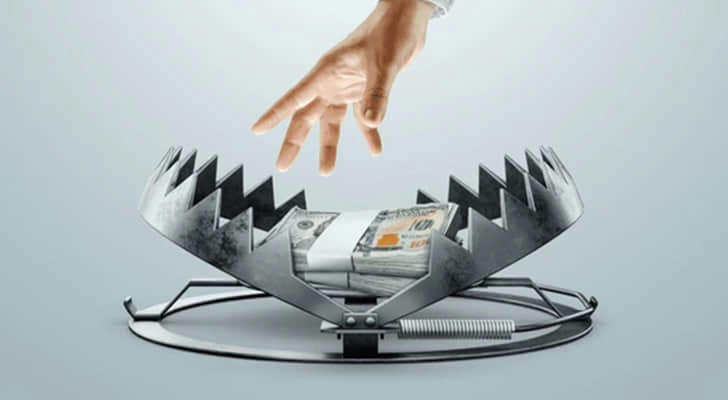Top Strategies to Get Money Fast and Cheap
In a world where financial surprises can pop up at any moment, having a reliable strategy for accessing quick cash is essential. Whether it's an unexpected medical bill, a car repair, or an urgent home expense, knowing how to borrow money affordably and efficiently can make all the difference. In this guide, we'll explore various borrowing options, highlighting the most cost-effective methods while steering you clear of the pitfalls associated with high-interest loans.

Most Affordable Ways to Borrow Money
Most types of borrowing involve some cost, but some options are cheaper than others, especially if you have good or excellent credit (usually a score of 690 or higher).
Here are the top choices:
1. Personal Loan from a Bank or Credit Union
Banks and credit unions often offer the lowest annual percentage rates (APRs) for personal loans. You can usually borrow from a few hundred to over $50,000, with repayment terms spanning from two to seven years. Some banks offer extra APR discounts if you're already a customer and may provide flexible repayment options.
Credit unions might offer better rates, especially if your credit isn't perfect. They often look at your overall financial situation rather than just your credit score. However, you must be a member to apply.
Pros:
Lower APRs.
Possible perks like flexible payments and discounts for existing customers.
Various types of loans are available, including secured and co-signed options . Cons:
Banks may require good or excellent credit.
Credit unions require membership.
2. 0% APR Credit Card
A 0% APR credit card can be a cost-effective way to borrow money if you pay off the balance before the zero-interest period ends, typically between 15 and 21 months. Good or excellent credit is usually needed to qualify.
For example, if you use a 0% APR credit card to cover a surprise expense and pay it off within the introductory period, you'll avoid paying interest.
Pros:
No interest during the introductory period.
Possible perks like cash back or travel rewards.
Cons:
Requires good or excellent credit.
Must repay within the short term.
3. Buy Now, Pay Later
With a "buy now, pay later" plan, you can purchase items now and pay for them over a few weeks, often without interest. Many retailers offer these plans at checkout.
Companies like Afterpay and Affirm provide short-term, interest-free payment options, though Afterpay might charge late fees. These plans can be a budget-friendly way to handle expenses, but they can also lead to overspending.
Pros:
No interest or fees with some plans.
Available at many major retailers.
Cons:
Some plans include interest or fees.
Risk of overspending.
4. 401(k) Loan
A 401(k) loan lets you borrow from your retirement fund without incurring taxes or penalties, as long as you follow the repayment terms. These loans typically have low interest rates, and you don't need a credit check. The interest you pay goes back into your retirement account.
However, borrowing from your retirement fund can reduce your future savings and its growth. If you leave your job before repaying the loan, you may need to pay it back quickly to avoid penalties.
Pros:
Low interest rates.
Interest paid goes back to your retirement account.
No impact on credit score for missed payments.
Cons:
Reduces your retirement savings.
Potentially quick repayment is needed if you leave your job.
5. Personal Line of Credit
A personal line of credit functions like a mix between a loan and a credit card. Approved based on your credit profile and income, you can borrow as needed and only pay interest on the amount you use. This option is great if you're unsure how much you need to borrow.
Pros:
Borrow as needed and pay interest only on the amount used.
Credit limit replenishes as you repay.
Cons:
- Requires good or excellent credit.
6. Home Equity Financing
If you own a home, you might qualify for a home equity loan or a home equity line of credit (HELOC). These let you borrow against the value of your home and usually offer lower interest rates compared to unsecured loans. Home equity loans provide a lump sum with a long repayment term, while HELOCs let you borrow and repay as needed over a draw period.
Pros:
Lower interest rates.
Long repayment periods.
Cons:
- Risk of losing your home if you miss payments.

Fastest Ways to Borrow Money
Typically, the quicker you can get the money, the more it might cost. Here are some of the fastest ways:
1. Personal Loan from an Online Lender
Online lenders offer a convenient and fast application process, with some providing same- or next-day funding. They also tend to serve a broader range of credit profiles, making it easier to get approved if you have less-than-perfect credit.
Pros:
Entirely online process.
Quick funding, sometimes within a day.
Cons:
- Higher APRs for those with fair or poor credit.
2. Loan App
Cash advance apps give you small advances on your paycheck, sometimes instantly, though expedited service may come with a fee. They usually charge a subscription fee or ask for a tip.
Pros:
Many fees are optional.
Instant cash option available.
Cons:
Potential fees for instant access.
Short repayment terms and small amounts.
3. Cash Advance from a Credit Card
You can get cash advances from your credit card, either through ATMs or by visiting a bank. It's quick but comes with high fees and interest rates that start accumulating immediately.
Pros:
No application or approval is needed if you already have the card.
Easy access via ATM or bank.
Cons:
High fees and interest rates.
Low borrowing limits.
4. Loan from Family or Friends
Borrowing from people you know can be quick and affordable without the need for formal applications or credit checks. Just make sure to clearly document the terms to avoid potential conflicts.
Pros:
No formal application process.
Potentially no or low interest.
Cons:
- Can lead to personal conflicts.
5. Pawnshop Loan
Pawnshops offer loans where you use an item as collateral. It's quick and doesn't involve credit checks, but you might face high interest rates and fees.
Pros:
No approval process.
Immediate funds.
Cons:
Risk of losing valuable items.
Short repayment periods.

Borrowing Options to Avoid
1. Payday Loans
Payday loans are small, short-term loans meant to be repaid with your next paycheck. They're extremely expensive, with high fees that create a cycle of debt.
2. High-Interest Installment Loans
These loans come with very high interest rates, often above 36%. They can be hard to repay due to the excessive cost.

After you borrow money, it’s important to plan how you’ll repay it. Use the 50/30/20 rule for budgeting to manage your expenses, debt, and savings effectively. Keeping a close eye on your finances and building an emergency fund can help reduce future borrowing needs.
